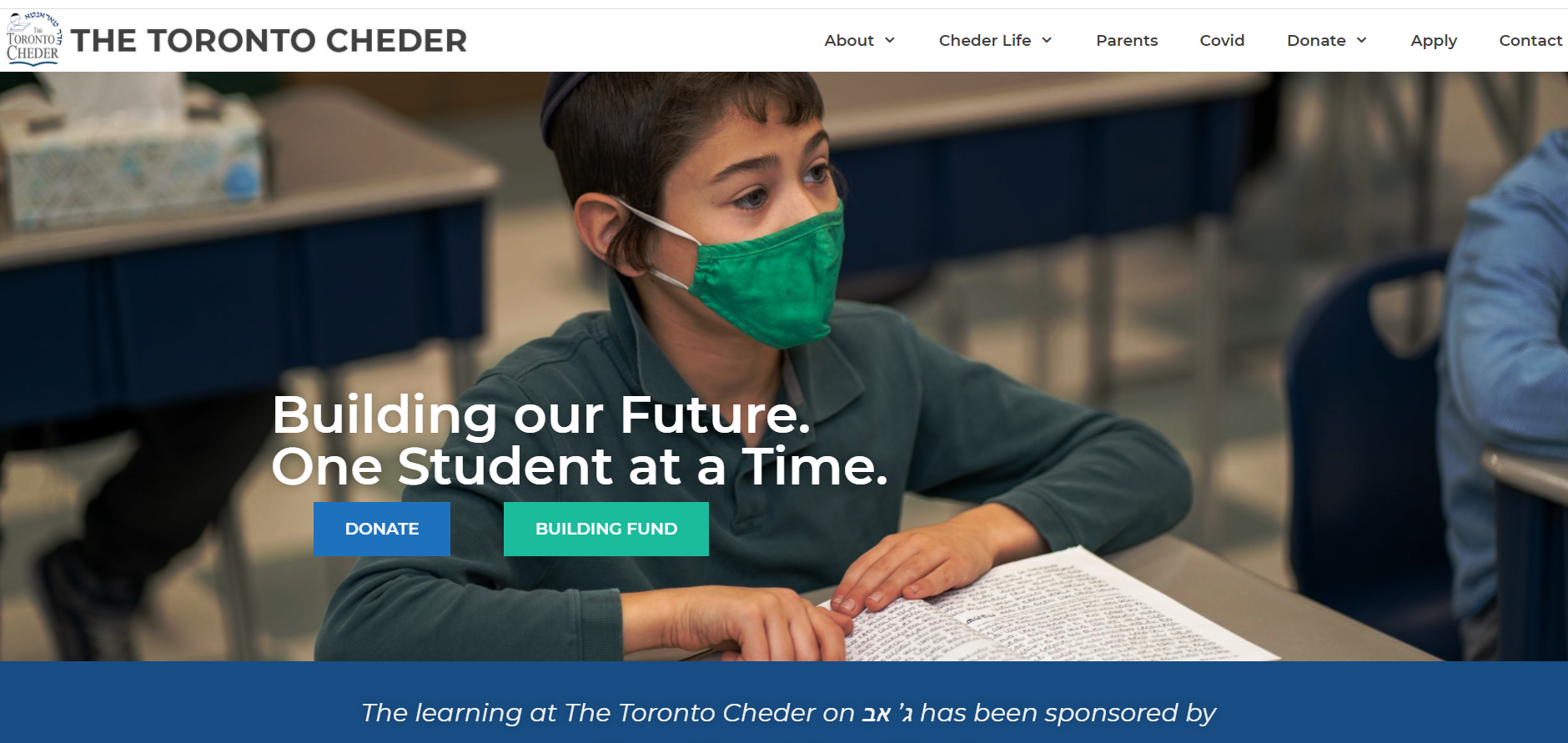A Toronto yeshiva and two other private schools are suing the provincial government for their share of federal funds to cover COVID-related safety measures.
Toronto Cheder, along with Metropolitan Preparatory Academy in Toronto and Woodland Christian High School in Kitchener, Ont., have filed a lawsuit arguing that a portion of the $763 million from the Safe Return to Class Fund—which Ottawa earmarked for Ontario for improved ventilation, sanitation and other COVID safety measures—should have been distributed to private schools.
Funding from the federal government to provinces and territories was allocated based on the total number of children between 4 and 18 years old, the lawsuit states.
Ontario, however, distributed the funds through public and Catholic school boards, omitting 1,500 private schools and their 150,00 students altogether.
The suit asks for funds to be distributed to independent schools on a pro-rata basis, the same as public schools. It also asks for a declaration that “Ontario acted unlawfully, unreasonably, improperly, disproportionately, arbitrarily, and in excess of its authority.”
“Ontario’s implementation of the Safe Return to Class Fund—specifically its decision to exclude independent schools—is unfair, unreasonable and unlawful, and constitutes a breach of the Applicants’ and other independent schools’ legitimate expectations and vested rights,” the suit states. “These schools operate in the public interest and have a role to play in the public health interest as well.”
The case will be heard in Ontario Divisional Court on Aug. 9. The schools are being represented by Aaron Rosenberg and David Elmaleh of RE-LAW LLP.
The pandemic forced Toronto Cheder, an Orthodox boys’ school with an enrollment of 350 students and 79 staff, to incur additional costs.
According to an affidavit from Rabbi Shmuel Horowitz, the school’s executive director, Toronto Cheder spent $44,951 on COVID-related expenses. Those costs included $14,832 for personal protective equipment, $8,356 for teleconferencing, $7,761 for additional sanitizing and $3,492 for “prizes and treats for students to improve mental health during lockdowns.”
Toronto Cheder used a teleconference system instead of conventional online programs to educate and communicate with students when the school was in lockdown.
“Toronto Cheder and its students and staff have endured this pandemic like every other school in Ontario,” the affidavit states. “We have complied with public health requirements and closure orders. If a single school is less protected than others and thus, more at risk of an outbreak, the health and safety of all residents of Ontario/Canada are at risk.”
Despite the school’s best efforts, it was one of the first to test positive for a COVID variant of concern (VOC). In February 2021, Toronto Public Health identified the school as one of eight in Toronto that went into lockdown when a VOC was detected.
B’nai Brith Canada is the sole intervenor in the case. “It is completely unjustifiable for the Ontario government to discriminate against kids that attend independent schools,” Michael Mostyn, CEO of B’nai Brith Canada, said in a news release. “The province needs to reverse course and treat all children equally.”
Ontario, unlike other provinces, funds the public and Catholic school systems, but not private or faith-based schools.
In December 2020, Ontario independent schools formed a coalition to lobby for a share of the federal funds based on student enrolment. At that time, in response to a question submitted by the Canadian Jewish Record, a spokesperson for the provincial education ministry replied in an email, “In Ontario, private schools operate as businesses or non-profit organizations independently of the Ministry of Education and in accordance with the legal requirements established by the Education Act. They do not receive any funding or other financial support from the government.”
All Ontario families, including those with children at private school, were eligible for provincial grants provided directly to parents.
